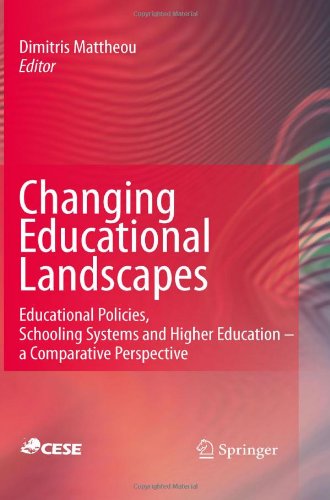

Most ebook files are in PDF format, so you can easily read them using various software such as Foxit Reader or directly on the Google Chrome browser.
Some ebook files are released by publishers in other formats such as .awz, .mobi, .epub, .fb2, etc. You may need to install specific software to read these formats on mobile/PC, such as Calibre.
Please read the tutorial at this link: https://ebookbell.com/faq
We offer FREE conversion to the popular formats you request; however, this may take some time. Therefore, right after payment, please email us, and we will try to provide the service as quickly as possible.
For some exceptional file formats or broken links (if any), please refrain from opening any disputes. Instead, email us first, and we will try to assist within a maximum of 6 hours.
EbookBell Team

5.0
100 reviewsAnalyzing educational landscapes – the fundamental values, principles and institutions of the sector – is a highly complex and demanding task for any researcher. Like shifting desert sands, these aspects of education are in a constant state of flux, changing according to the unpredictable economic, social, cultural and geo-political circumstances of late modernity. Key aspects of the intricate, fluid and multifarious contemporary setting can always escape the researcher’s necessarily selective observation. The contributors to this book share the view that it is wise, therefore, to take note of other people’s ideas, perceptions and perspectives, to compare notes and reflect critically on them. Thus the papers presented here are a critical and comparative analysis of today’s changing educational landscapes. They are an exploration of some of the forces and factors that induce these changes, and also examine some of their most significant implications. The work takes a fresh look at received ideology and institutional practices and delineates the increasingly internationalized educational discourses and policies. Among other things, the book discusses the obsession with quality in education and the alternative perceptions of educational equality; the rising concern at the obstacles to truly multicultural education, and the debate about the epistemological foundations both of knowledge and knowledge production. Underlying all of the papers in the book is the authors’ intention to enhance our understanding of educational change in this era of transition and to further our appreciation of its multifaceted expressions across the world.